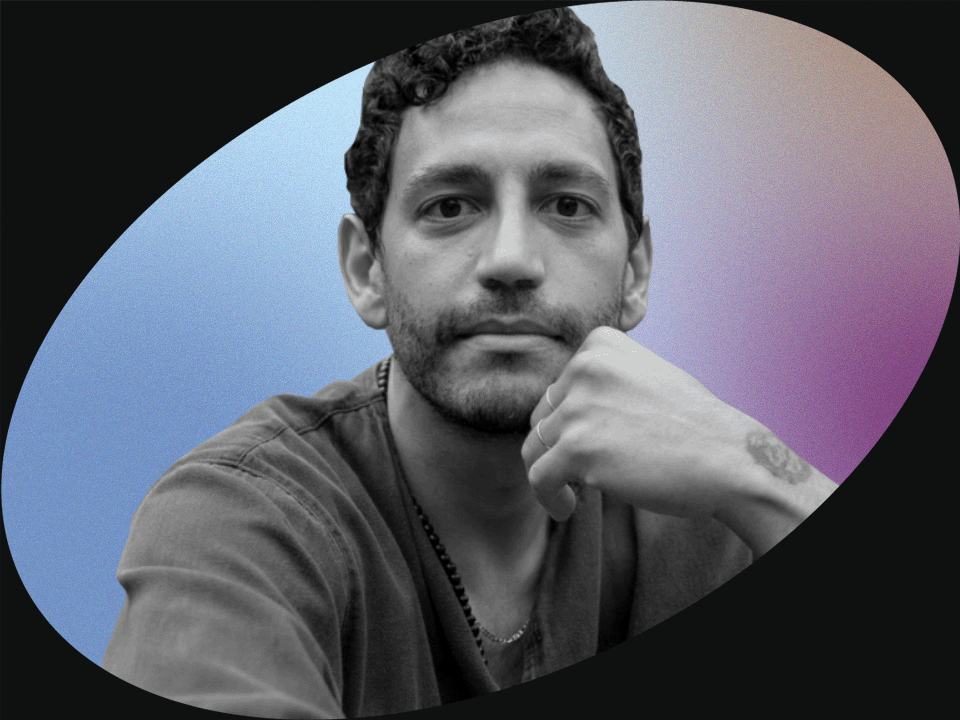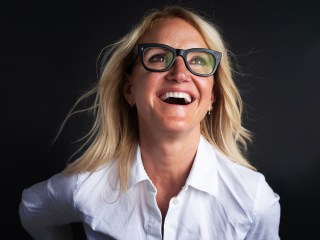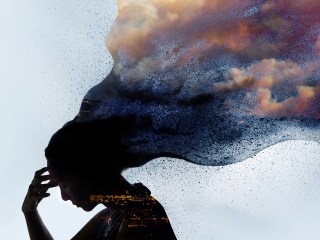Christopher Rivas on Brownness, Spirituality, and Mental Health
“Part of writing this book was me deciding to do the unbraiding, to fix the cuts, to put the salve on the wounds.”
Part social commentary, part memoir, actor Christopher Rivas’ first book, Brown Enough, delves into what it means to be Brown in America and the importance of Brown people taking up space, embracing their identities, and prioritizing their wellbeing.
“Mental health, especially for Brown people, [for] bodies of culture, is one of the most beautiful acts of resistance,” he says. Here, Rivas talks about the collection of essays, remembering his worth, and the power of “meeting yourself.”
[Sign up here to never miss these candid conversations delivered straight to your inbox.]
WM: How are you doing lately?
Christopher Rivas: If you want the real answer, I'm reading the Upanishads. Spirituality's a big part of my life. Upanishads is supposedly one of the first of the books. Before there was the Bible or Christianity or Catholicism [or] the Buddha, there were the Upanishads. It brings me a lot of peace. I’ve read many spiritual scriptures, and it's nice to see they all come down to this basic thing, which is: be kind to yourself, be kind to others, keep your heart open, don't forget to breathe. That said, I'm both invigorated and in a good place.
WM: Is there a certain passage that’s speaking to you right now?
CR: “The earth is the honey of all beings and all beings are the honey of this earth.” I like that because honey is sweet. It's not needed. It's kind of decadent, but it's also such a gift from such a needed animal, the bee. There's a lot of medicine you can work through in just that one line.
WM: You’re coming out with a book called Brown Enough this October. Can you tell us about it and your journey writing it?
CR: Brown Enough is a beautiful manifesto for taking up space for everyone under the gaze of whiteness. … What does it mean to take up space in this conversation between Black and white? When I thought about Brownness, it wasn't just Latinoness (Latinidad) [or] Hispanics. It was everything in between this crazy chasm known as Black and white, and I wanted to take up space in that place.
I wanted to cast a spell of self-worth for myself and others. The dedication in the book [is basically] for all the little Brown kids who need to see themselves grander and more vibrant, but don't. I see you. I hear you. … I look at Brownness in different fields of the world, from student loans to pretending to assimilation to Hollywood to meditation and mindfulness to climate change.
WM: You've talked about code-switching and changing your hair to fit in, especially in Hollywood. Can you talk about how that's impacted your sense of self?
CR: Hollywood is… we sell an idea of what the world is, but it's not really what the world is. I have chosen to work in that sold idea, because I love it, right? Let's not get it twisted. [I] love the acting, have a great time doing it. But [I remember] leaving college and having what I thought was a beautiful curly 'fro, and my white Jewish manager telling me that I hadn't earned that hair yet and I needed to cut it all off, and going home and crying and agreeing with her. I agreed with her. I let her tell me what I was worth or not worth or what my position was. And I shaved it all off.
Fast forward and the same manager tells me to get a nose job. And I agreed with her, and I did it. The crazy thing is I got more work, and I had to ask myself, Am I working more because I look more Eurocentric? Because I look more white, more acceptable, more approachable? This stuff starts to get under your skin; these traumas of the way we pretend and code-switch, they get braided into us. It's like death by a thousand cuts. If you are a body of culture in this white world, you are constantly code-switching, and you know, little paper cut here, little paper cut here, and that stuff gets braided into us.
Part of writing this book was me deciding to do the unbraiding, to fix the cuts, to put the salve on the wounds. Code-switching is a big part of my life, as I'm sure it is your life and many people's lives. I think when we give them light and we start to unplug from them and we say, “I don't want to,” or we say, “I still need to, and that's cool too.” But [when] we do it consciously, we start to take our power back.
WM: What helped you get to that point?
CR: Honesty. You gotta own it. You gotta really look yourself in the mirror and be like, Am I ready to do this? What exhaustion am I putting on myself by changing for other people? Because it's happening.
Part of it is just admitting, doing this radical reevaluation of your life. What systems am I plugged into? Where, when, [and] how is it exhausting to me? … Am I ready to unplug from it?
WM: How do you feel about your place in the world now?
CR: It’s like Upanishads: I'm the honey of all beings, but so are you. I feel good. And this is today. I'm also aware that tomorrow might be different, an hour might be different, because that's how we are as human beings. … I feel like I have started to just meet my voice. My life has been a journey of trying to find my voice, which is really meeting yourself.
I look at it this way: This is who we want to be. This is who we are. Our work, as we ask big questions and meet ourselves, is bringing those things closer together until they finally touch. I think I'm really close to this nice union of self.
WM: If you were to talk to yourself like a friend, what would you say?
CR: Fall back. The pandemic taught me a lot about loss. At the end of the day, when it was all really wild, what I had was the people I loved and the little things, like being able to go to a basketball court by myself and shoot around and some books I liked. Fall back. You don't have to hustle so hard. You get to enjoy your life now, not when you think you've crossed off the list of goals and you did this and your bank account is a certain place. 'Cause if you don't love it now, you probably won't love it then. You get to enjoy your life.
This interview has been edited and condensed for length and clarity.
Wondermind does not provide medical advice, diagnosis, or treatment. Any information published on this website or by this brand is not intended as a replacement for medical advice. Always consult a qualified health or mental health professional with any questions or concerns about your mental health.




